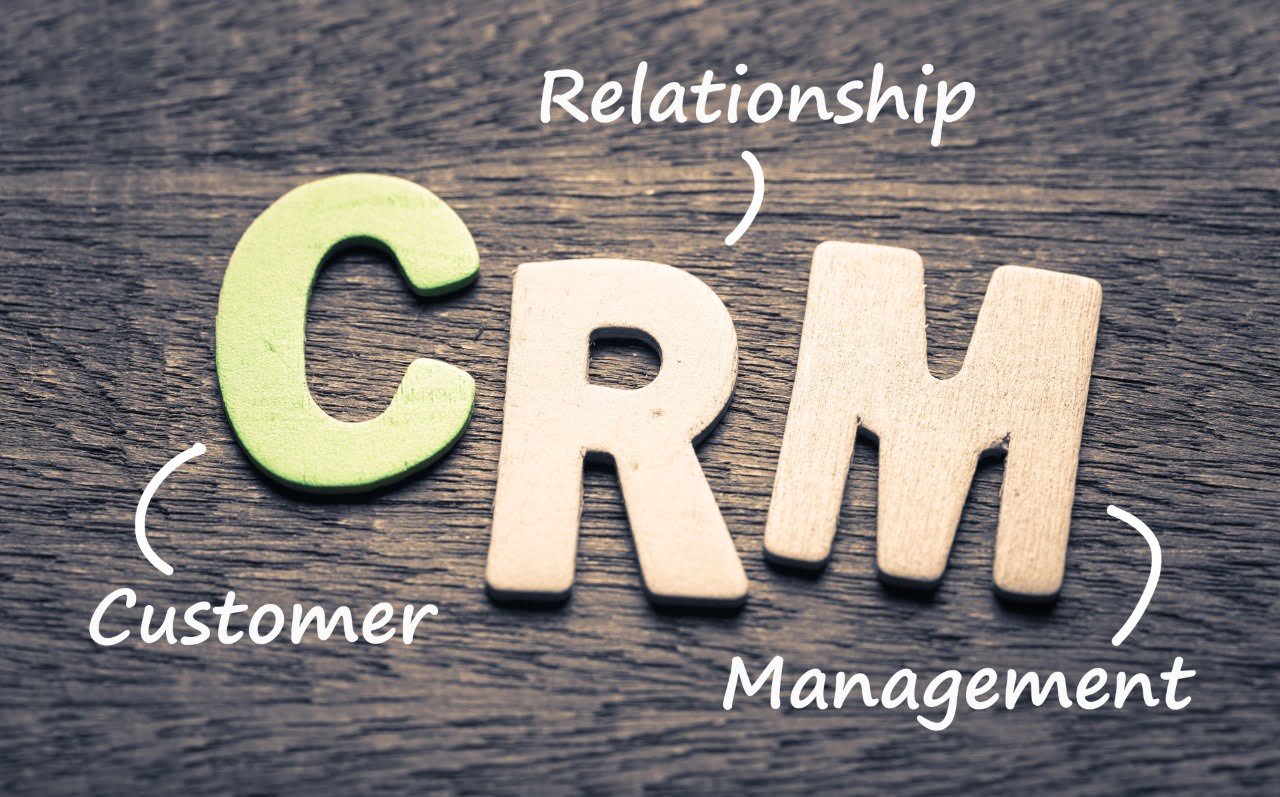What is CRM sales software?
Customer Relationship Management (CRM) sales software is an essential tool for businesses looking to streamline their sales processes, improve customer relationships, and increase revenue. It is a technology solution that enables companies to manage their interactions with existing and potential customers more efficiently, resulting in higher customer satisfaction and better business outcomes.
CRM software is designed to centralize customer data, including contact information, purchase history, and communication history. It provides a comprehensive view of each customer, allowing sales teams to personalize their interactions and tailor their sales approach accordingly. With this information at their fingertips, sales reps can easily identify opportunities to cross-sell and upsell products and services, while also ensuring they are meeting the unique needs of each customer.
CRM software also provides valuable insights into customer behavior and trends, enabling businesses to make data-driven decisions. Sales teams can use this information to identify high-value customers, track customer engagement and satisfaction levels, and predict future sales trends. By tracking and analyzing this data, businesses can optimize their sales strategies, make informed business decisions, and achieve better results.
Top 10 CRM sales software
Customer Relationship Management (CRM) software has become an essential tool for businesses of all sizes. A good CRM system can help organisations manage their sales pipeline, customer interactions, and track the success of their sales efforts. Here are the top 10 CRM sales software and their features:
Salesforce:
Salesforce is one of the most popular CRM sales software in the market. It provides a comprehensive suite of features that can help businesses manage their sales, marketing, and customer service operations. Salesforce includes features such as lead management, opportunity management, forecasting, and analytics. It also offers customization options to help businesses tailor the platform to their unique needs.
HubSpot:
HubSpot is an all-in-one marketing, sales, and customer service platform that provides a range of tools for businesses of all sizes. Its CRM sales software includes features such as lead tracking, deal tracking, and contact management. HubSpot also provides sales analytics and reporting, allowing businesses to track the success of their sales efforts.
Zoho CRM:
Zoho CRM is a cloud-based CRM system that provides a range of features for businesses. It includes lead management, deal tracking, and contact management features, as well as analytics and reporting tools. Zoho CRM also integrates with a range of other Zoho products, including Zoho Books and Zoho Projects.
Pipedrive:
Pipedrive is a sales-focused CRM system that provides a range of features for businesses. It includes lead management, deal tracking, and contact management features, as well as sales analytics and reporting. Pipedrive also offers a range of customization options, allowing businesses to tailor the platform to their unique needs.
Freshsales:
Freshsales is a cloud-based CRM system that provides a range of features for businesses. It includes lead management, deal tracking, and contact management features, as well as analytics and reporting tools. Freshsales also provides a range of customization options, allowing businesses to tailor the platform to their unique needs.
Salesflare:
Salesflare is a sales-focused CRM system that provides a range of features for businesses. It includes lead management, deal tracking, and contact management features, as well as sales analytics and reporting. Salesflare also integrates with a range of other tools, including Google Apps, Mailchimp, and Slack.
Insightly:
Insightly is a cloud-based CRM system that provides a range of features for businesses. It includes lead management, deal tracking, and contact management features, as well as analytics and reporting tools. Insightly also integrates with a range of other tools, including Google Apps, Office 365, and Mailchimp.
Copper:
Copper (formerly ProsperWorks) is a sales-focused CRM system that provides a range of features for businesses. It includes lead management, deal tracking, and contact management features, as well as sales analytics and reporting. Copper also integrates with a range of other tools, including Google Apps, Slack, and Zapier.
Nutshell:
Nutshell is a sales-focused CRM system that provides a range of features for businesses. It includes lead management, deal tracking, and contact management features, as well as sales analytics and reporting. Nutshell also provides a range of customization options, allowing businesses to tailor the platform to their unique needs.
Agile CRM:
Agile CRM is a cloud-based CRM system that provides a range of features for businesses. It includes lead management, deal tracking, and contact management features, as well as analytics and reporting tools. Agile CRM also integrates with a range of other tools, including Google Apps, Office 365, and Mailchimp.
Why CRM is required for sales?
Customer relationship management (CRM) is a critical tool for sales teams that helps them manage customer interactions and improve their overall sales performance. In today’s highly competitive business environment, organisations need to focus on improving their customer relationships, and a CRM system is essential for this. In this article, we will discuss why CRM is required for sales and how it can help businesses achieve their sales goals.
Managing Customer Data
A CRM system enables sales teams to store and manage customer data in one central location. This data can include contact information, purchase history, communication preferences, and other relevant details. Having a complete and up-to-date view of customers allows sales reps to personalize their interactions and better understand customer needs. This, in turn, helps them build stronger relationships with customers and close more deals.
Streamlining Sales Processes
A CRM system can help streamline sales processes by automating repetitive tasks such as data entry, lead management, and follow-up activities. This allows sales reps to focus on selling rather than administrative tasks, leading to increased productivity and sales efficiency.
Improved Sales Forecasting
By analyzing customer data and sales trends, a CRM system can provide sales teams with valuable insights into customer behavior and preferences. This information can be used to predict future sales opportunities and identify areas for improvement in the sales process. Improved sales forecasting enables sales reps to prioritize their efforts and allocate resources more effectively, leading to increased sales and revenue.
Enhanced Communication
A CRM system can also help improve communication between sales reps and customers. By tracking all customer interactions, a CRM system can ensure that sales reps are aware of all customer needs and preferences. This, in turn, allows sales reps to provide timely and relevant information to customers and build stronger relationships.
Better Customer Service
A CRM system can help improve customer service by providing sales reps with quick and easy access to customer data. This allows sales reps to address customer inquiries and concerns promptly, leading to higher customer satisfaction and loyalty.
Increased Sales Collaboration
A CRM system can also help promote collaboration among sales reps by allowing them to share information and insights. This helps sales teams work together more effectively and efficiently, leading to increased sales and revenue.
Improved Sales Reporting
A CRM system can provide sales managers with valuable insights into the performance of their sales team. This includes information on sales trends, individual sales rep performance, and customer behavior. This information can be used to identify areas for improvement and develop strategies to increase sales and revenue.
Effective Marketing
A CRM system can also be used to improve marketing efforts. By analyzing customer data, sales teams can identify target segments and develop more effective marketing campaigns. This helps sales reps generate more leads and increase sales opportunities.
A CRM system is essential for sales teams that want to improve their customer relationships and increase their sales performance. By providing a centralized location for customer data, automating sales processes, and providing valuable insights into customer behavior and sales trends, a CRM system can help sales reps build stronger relationships with customers, increase sales efficiency, and generate more revenue.
How is CRM used in sales?
Customer Relationship Management (CRM) is a widely used tool in sales. It is a system that helps businesses to manage customer interactions, relationships, and data in a more efficient manner. CRM is an essential tool for businesses of all sizes, as it allows them to manage customer interactions across multiple channels and touchpoints. In this article, we will explore how CRM is used in sales and how it helps businesses to improve their sales processes.
CRM software can help sales teams to manage their sales pipeline more effectively. The sales pipeline is the process that a potential customer goes through from the first point of contact with a business to the point where they become a customer. CRM software allows sales teams to track the progress of leads and prospects through the pipeline, ensuring that they are followed up with at the right time, with the right message.
One of the most significant benefits of CRM in sales is that it provides sales teams with a complete view of their customer interactions. With CRM software, sales teams can see all the touchpoints that a customer has had with the business, including emails, phone calls, and website interactions. This information allows sales teams to tailor their approach to each customer, ensuring that they provide a personalized experience.
CRM software can also help sales teams to identify the most valuable customers. By analyzing customer data, such as purchase history and order frequency, CRM software can identify customers who are likely to make larger purchases or who are more loyal to the business. Sales teams can then focus their efforts on these high-value customers, ensuring that they receive a personalized and attentive service.
Another key benefit of CRM in sales is that it helps to improve communication between sales teams and other departments. For example, the marketing department can use CRM data to create targeted marketing campaigns based on customer behaviour and preferences.
Conclusion
In conclusion, Sales CRM software is a powerful tool that can help businesses optimize their sales processes and drive growth. It can save time, increase efficiency, and improve customer relationships, ultimately leading to increased sales revenue and business success. However, it is important to choose the right software for your business needs and to invest in proper training and support to maximize its benefits.
Frequently Asked Questions
The benefits of using sales CRM software include improved efficiency, increased productivity, better communication, streamlined sales processes, improved customer satisfaction, and enhanced sales forecasting and reporting.
Sales CRM software typically integrates with other software tools and databases, including marketing automation tools, customer service tools, and accounting software. The software helps businesses organize and track their customer data, including interactions, communication, and sales.
The features you should look for in a sales CRM software depend on your business needs. Some key features include lead and opportunity management, contact management, sales forecasting, reporting and analytics, email integration, and mobile accessibility.
The cost of sales CRM software varies depending on the provider and the features included. Some providers charge a monthly subscription fee, while others charge a one-time fee for the software. Some providers offer a free trial or a freemium model.
Yes, most sales CRM software can integrate with other business software, including marketing automation tools, customer service tools, accounting software, and more. This helps businesses streamline their processes and improve communication across departments.



